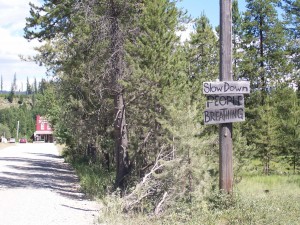 At a recent clergy event the workshop leader asked us talk about what gets in the way in pastoral care situations. When you are trying to offer or articulate hope to someone, what gets in the way for you?
At a recent clergy event the workshop leader asked us talk about what gets in the way in pastoral care situations. When you are trying to offer or articulate hope to someone, what gets in the way for you?
I listened as someone in my group talked about the cliques in her congregation and how they were insular and closed and it was hard to break into those circles. I thought that was a weird answer. Not an uncommon experience, maybe, but a weird way to answer what gets in the way “for you.” As she continued to talk she merely described in greater detail how they were closed off and why that was hard and frustrating.
She was clearly frustrated but she also wasn’t saying anything personal. She wasn’t actually describing why or how this situation gets in the way of her expression of hope. I reminded her of the question after she’d been talking for 5 minutes or more. She looked momentarily stunned, taken off course of her (perhaps usual) rant about the congregation. What makes this hard for you? What are you afraid will happen if you try to break apart the cliques? Like a breath of fresh air in a room of tired words and circular scripts, she said, “Rejection.”
But when the next person spoke she also started in the safe and well-worn territory of how frustrating the congregation was in certain behaviors. In great detail she described their patterns and pointed out how foolish those were. She didn’t offer a glimpse of her internal struggle around this situation until I reminded her of the question.
This is one of the reasons I find many clergy gatherings annoying and a little heartbreaking. Instead of relaxing into the wisdom and support of colleagues, instead of reveling in having peers with whom to share the strange (and wonderful) experience of our callings, we so often retreat into posturing and pretense. Even here, we are reticent to be who we really are.
I’ve been reading Brené Brown’s work recently. “Exhaustion as a status symbol” is her description of one of the ways we rank our worth among others and a very unhealthy way of arranging our lives. If I am going fast enough and my to-do list is long enough and I am always busy enough then I can proudly say “crazy busy” anytime anyone asks. You know how that goes. When someone dares to schedule a vacation, others say, “Must be nice. Wish I had time to take vacation! I haven’t had one in 3 years.”
I have even encountered this – multiple times – in clergy gatherings. Pastors who never take a day off or turn the phone and email off. Pastors who look at you with pity, amusement, disdain, hostility, pride, or a combination of those when you talk about observing Sabbath or choosing to say “no” to a request or in any way refusing for one moment to pretend that you are Super Pastor. No wonder we are afraid to start where we really are, to say “rejection.”
I admit that I am not looking at most clergy gatherings as opportunities to share my deepest thoughts, dreams, and struggles. But I do keep hoping to get beneath the professional minister veneer and the competitive colleague game and at least savor the day and the time together as the gifts they are.
